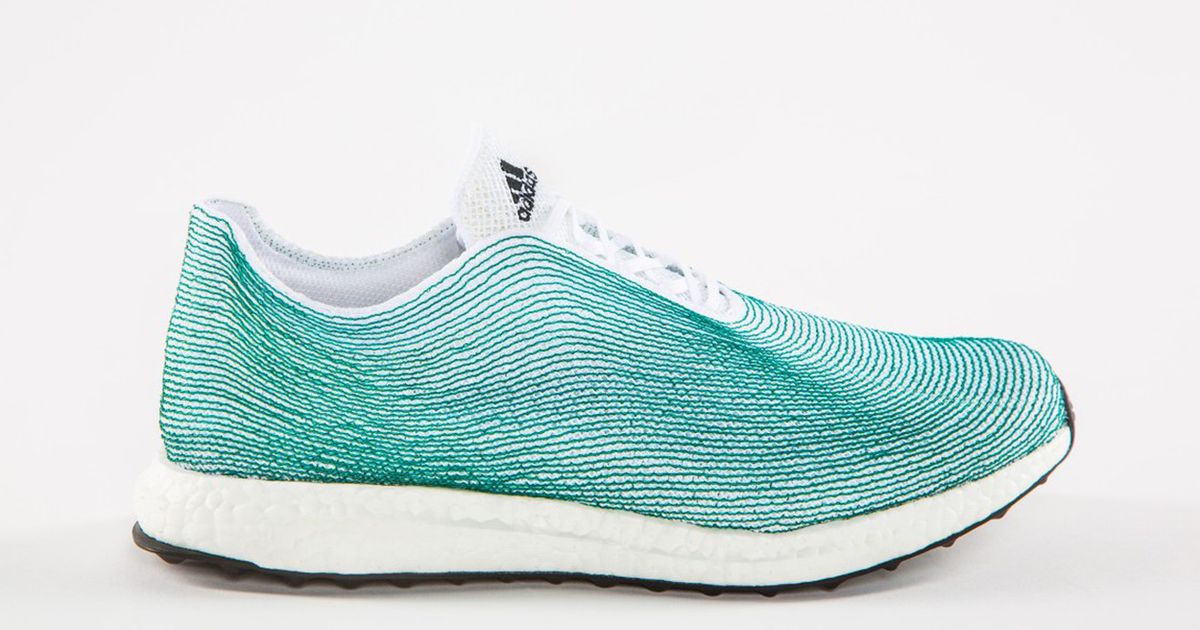This article talks about Adidas’ initiative to save the world–one shoe at a time. In the last two years, Adidas has sold more than 1 million shoes that are made of trash from the ocean. This shoe made from recycled materials is one of many methods that companies use to appeal to the environment conscious Millennial. Apparently each pair of shoes uses 11 recycled water bottles, which are found in the laces, and other parts of the shoe.
These companies are not necessarily the ones coming up with this innovative way of creating shoes and saving the environment at the same time. With Adidas, it’s Parley. And with Timberland, it’s Thread.
With the success of Adidas , Nike has now hopped on board with a Flyweather partnership. Will this trigger a domino effect of widespread fashion sustainability? Or is it just a trend to get into our pockets?

Shandice, great article. I think this will definitely trigger a domino effect. Once we have the big players influencing the market, there will be opportunities for partnership to further the sustainable initiative. Not only is this an environmentally friendly and fashionable solution, it is cost effective.
I have attached an articles that discusses how the fashion industry is using 3D printing, stem cells, and spider-like technology to create everything from silk to fur.
https://www.nytimes.com/2017/11/12/style/alternative-fabrics-sustainability-recycling.html
Shandice, thanks for sharing, this is really interesting. I agree with Mylinh that engaging bigger players in the market will force other big brands to engage in socially responsible marketing/manufacturing. I agree that this is probably a larger scheme to appear socially conscious for Millenial consumers. Although not altruistic, I’m fine with the trend. For a comparison, I think Patagonia does a much better job of dedicating their brand and company mission to socially and environmentally conscious ideals. In fact, Patagonia recently registered as a “benefit corporation” or “B-corp,” which allows them to make corporate decisions that are in line with their mission-driven philosophy, decisions that might otherwise go against the shareholders incentive to maximize profits. Until more companies take this drastic step I think socially/environmentally conscious products are just a trend – but at least it’s a positive trend!
Very cool idea. I think one of the main issues regarding this type of “recyclable fashion” in the past has been that the items are either unattractive or uncomfortable, and so never catch on in the mainstream. From the picture above, though, it looks like this is a product that Adidas is really dedicated to and has made an effort to make the product look rather similar to their regularly-produced items. It is curious to me, though, that Adidas has apparently been producing these shoes for two years, and yet I have never seen nor heard of them. Hopefully Adidas continues to get the word out about this environmentally-conscious innovation.
The fact they waited so long to reveal the composition of the product surprised me too. I’ve seen the shoes in stores, but I never knew they were made from ocean trash. Maybe that goes to the fact that they don’t care about appealing to the environmentally aware millennials–they just wanted to test out if the public would like the look of the shoe with sustainable products.
It does seem like people’s number one consideration is how they fit and feel, and it seems like they work on the sustainable front along with being comfy. I think people are shifting away from the Tom’s model where it was all about doing social good, and the typical Adidas’ model where form is what matters. Now we’ve reached a stage where both are necessary.
http://www.therunnerbeans.com/2017/07/adidas-parley-ultra-boost-review.html
I think its interesting that this innovation is coming from the big players. I would categorize this as a sustaining innovation rather than a disrupting innovation. Although one could argue that this is part of the (possibly) disruptive business innovation of Tom’s shoes. Do you think that, in the future, there will be ONLY recycled/socially conscious shoes available, or will this always be just a part of the broader shoe industry?